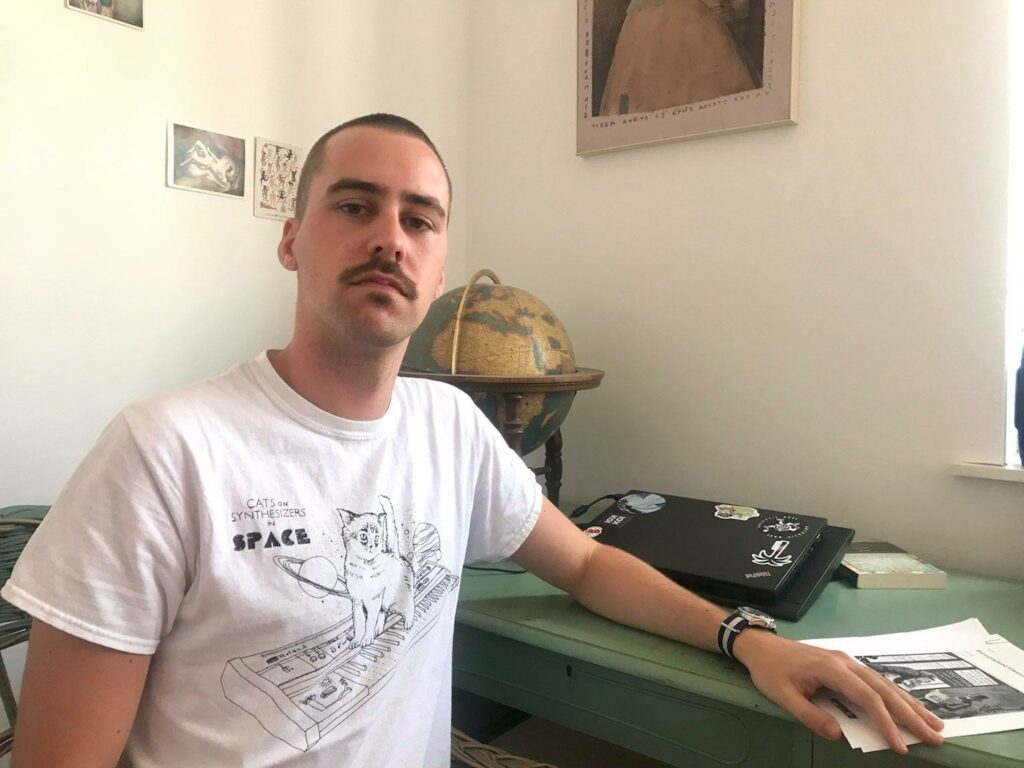Maemo Leste aims to provide a free and open-source experience on mobile phones and tablets. Find out more about the work that this team of innovators is developing with DAPSI’s support, in this interview with Ivan Jelincic.
 Can you briefly introduce yourself?
Can you briefly introduce yourself?
Greetings! I’m Ivan Jelincic (nickname “parazyd”). I am a long-time free software developer. I’ve worked on P2P networks, cryptocurrencies, Devuan GNU/Linux, and most recently founded the Maemo Leste mobile OS. Throughout the years I have collaborated with and contributed to many free software projects, communities, and organizations, like Dyne.org, and Bitreich, to name a few. Currently, outside of Maemo, I’m working with Dark Renaissance Technologies on a new anonymous operating system paradigm, and unlocking the hidden potential of this untapped design space.
My favourite programming languages are C, Python, Go, and Rust, and most recently my focus is zero-knowledge cryptography and multi-party computation.
What is your motivation to work in the data portability field?
The most important goal is to help people escape the clutches of surveillance and exposure. By developing interoperable tools, we can empower both developers and users to transition to far better and liberated technologies which will keep their data in their ownership, and their communication safe and private. It is also essential that these tools and technologies are free software, as otherwise things may become corrupt.
How did you hear about DAPSI and what drove you to apply?
We’ve heard about DAPSI through our friend Michiel, who is part of the Nlnet foundation. He told us about this opportunity, and not much more, but after doing research, we realized that we would be a great fit for the goals that DAPSI implies. Our main drive for applying is always sustainability. We want to be able to push our operating system forward, while keeping the transparent approach. This shows our community that we don’t have a corporate agenda, and as such, it builds trust between the community members. It is also a great way to incentivize new volunteers and contributors as projects like DAPSI enable us to implement more missing blocks in our operating system, making it more and more usable for the end-user and new developers.
In simple words, what challenge does your project address?
Android and Apple have an immense share of the global mobile market. They are both locked down by design, hide features from its users, and deliberately offer no convenient ways for full ownership of devices. There is also very little dedication for specific niches of privacy and security, and independence in this ecosystem. Standardized hardware that works cleanly with source code that is not modified by vendors is also little to non-existent.
We are a community-driven effort. All of our source code is free, public and auditable. All of our development and communication is also done publicly and transparently. This brings trust in the project and lets people know that we are dependable. By being independent of corporate influence, we are not subject to having to replicate existing operating systems. Rather, we offer a truly powerful alternative which empowers and cares about its users, developers, and the community in full.
What solution are you developing?
Maemo offers a few different solutions, for a couple of problems. By design, our operating system is free software, and there is no feature lock-in. The operating system itself allows users to utilize their devices to the fullest, allowing all features that a modern mobile device should be doing. Freedom, just like what should be expected. There is a need for this in the world, and the agenda of the giants does not care about it as much as we do.
Specifically in the DAPSI programme, we are working on implementing various network providers that allow users to very easily anonymize and secure their network traffic by using Tor, Wireguard, and OpenVPN. Along with this, we are developing interfaces and backends for popular and secure messaging protocols like Signal, XMPP, GNU Jami, and Matrix.
What makes this work unique is the fact that we are building all of this independently and it is not specifically tailored to our own system. All of the above mentioned projects can (and will) benefit from our work. By working and collaborating with other public projects, we are able to bring exposure both of Maemo to their users, and their projects to users of Maemo. This is beneficial both ways.
What will be the next steps?
The next steps are obviously finishing the work we currently have on our agenda. The next couple of months are going to be very significant for Maemo. The features we are going to finalize will show the wider community that the system is ready to be seriously used. Mid/Long term, we will probably be researching and learning about producing our own hardware, so we can set an example for other independent vendors.
For our updates and development, you can find us on https://twitter.com/maemoleste and from there, there are also links to all of our other resources and channels.

